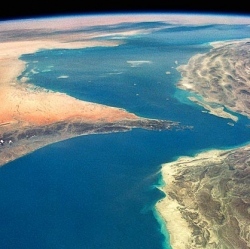
Luxembourg has already reached agreements with two US-based companies, Planetary Resources and Deep Space Industries, to open offices in Luxembourg and conduct major research and development activities. "We intend to become the European center for asteroid mining".
The mining of space resources is a long bet. Although some deep-pocketed investors from Google and other companies have gotten behind Planetary Resources, and people like Amazon’s Jeff Bezos have speculated that within a couple of decades most manufacturing and resource gathering will be done off Earth, there is precious little activity today. Humans have never visited an asteroid, and NASA is only just planning to launch its first robotic mission to visit and gather samples from an asteroid, OSIRIS-REx, this summer.
Nevertheless, no one doubts that outer space is overflowing with resources. Asteroids are packed with precious metals, 24-hour solar power from the Sun could be beamed back to Earth, and the reservoirs of water on the moon, asteroids, and beyond could be used for fuel, farming, drinking, and shielding us from radiation. Humans on Earth could theoretically live very comfortably on space resources without ever mining our home planet again.
The question is whether obtaining such resources could be made economical any time soon. Luxembourg intends to find out. Like the United States did last fall with its Commercial Space Launch Competitiveness Act, Luxembourg plans to rewrite its laws so that private companies are entitled to the resources they mine from asteroids, but not entitled to own the asteroids themselves. "We will become the first European country to set out its own legal framework," Schneider said.
The country may also do more than just offer companies a line of private credit. Luxembourg may invest in those companies itself, just like it invested in SES, which is now one of the world’s largest satellite companies. Back in the mid-1980s when Luxembourg first invested in SES, there was a similar amount of skepticism about the satellite industry, Schneider said. People wondered if they were in danger of satellites falling out of the sky on them.
Pete Worden, the former director of NASA’s Ames Research Center, is advising Luxembourg on this initiative. NASA is interested in going to Mars, and Europe is interested in lunar exploration, Dr. Worden said. But it is inefficient for any space agency to launch all of the resources it needs for extended space missions from Earth and potentially much less expensive to pick up supplies once in space. This could allow for the use of smaller, less expensive rockets. Worden envisions a time when NASA contracts with space miners to purchase quantities of water and other materials needed to further their exploration.
"I believe the future lies in a robust space economy that is driven by commercial interests," Worden said during the news conference. "The interesting thing is that we’re seeing a situation here where space agencies globally are moving from doing these things themselves. Just as NASA is contracting with launch companies, what we hope here is that the resources one needs to explore space can be purchased from these entrepreneurs."
The two companies mentioned on Friday, Planetary Resources and Deep Space Industries, are moving forward with plans to test asteroid mining techniques, both on the ground and then in space. Luxembourgian officials said Friday they believed that one or both of these companies could launch missions to survey potential asteroid mining targets within three years.
